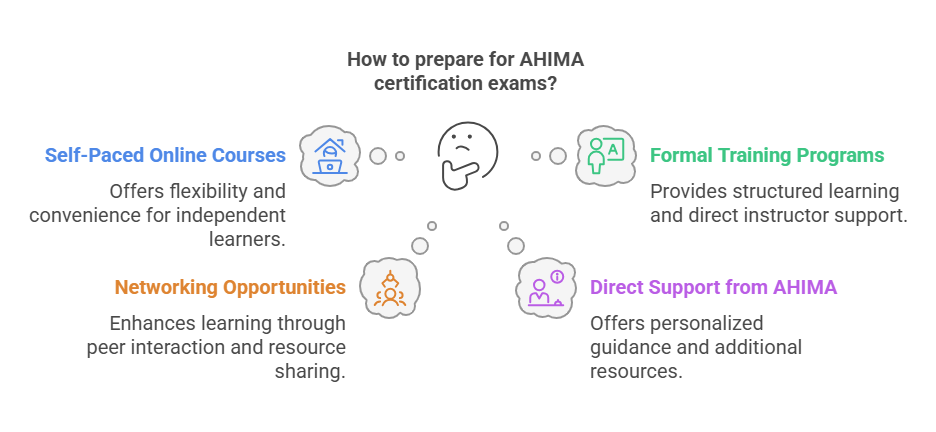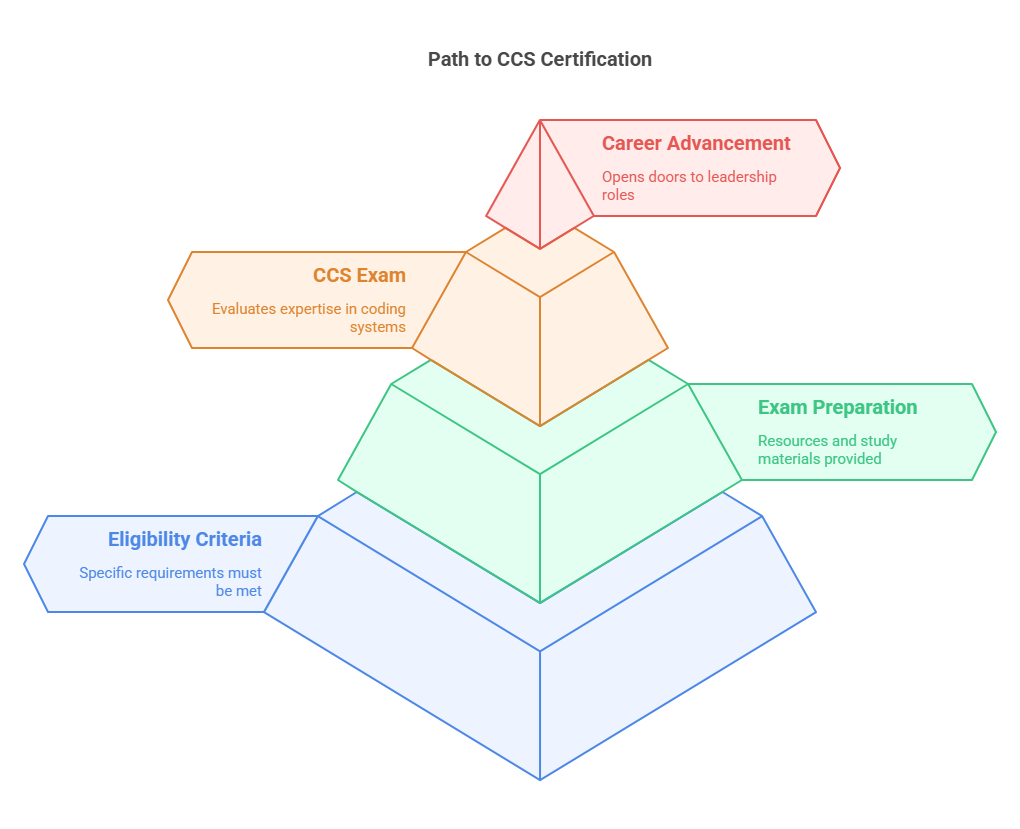Essential Guide to AHIMA Coding Certification for Aspiring Coders
AHIMA (American Health Information Management Association) coding certification is highly recommended for medical coders seeking to demonstrate their expertise and commitment to the healthcare industry. This certification is recognized and respected by employers, giving individuals a competitive edge in the job market. Among the AHIMA certifications, the Certified Coding Specialist (CCS) credential is particularly sought after, as it reflects a level of expertise in medical coding that is recognized by healthcare organizations worldwide. Achieving AHIMA certification can significantly improve job prospects and increase salary potential for medical coders.
Furthermore, AHIMA certifications are designed to showcase a coder’s in-depth knowledge and understanding of health information management. This certification helps professionals stay up-to-date with the evolving healthcare industry, ensuring they are equipped with the latest best practices and industry standards.

Medical Coding Career Path
Medical coding is a vital part of the healthcare system, requiring accuracy and precision to ensure proper billing, insurance claims, and maintenance of patient records. Medical coders have a variety of career opportunities available to them, including inpatient and outpatient coding, auditing, and healthcare compliance. With the increasing demand for qualified professionals in the healthcare industry, obtaining a medical billing and coding certification through recognized organizations like AMBCI or AHIMA serves as an effective tool for individuals to enhance their qualifications and expand their career options.
AHIMA certifications also open the door to leadership roles within the medical coding field. Coders can specialize in specific areas of coding, such as Current Procedural Terminology (CPT) or ICD-10-CM coding, which can provide even more career opportunities. Whether individuals are looking to advance within their current role or pursue new challenges in the industry, AHIMA certifications can play a crucial role in achieving those goals.
Preparing for AHIMA Certification Exams
Preparing for AHIMA certification exams requires a strategic approach. Medical coders can choose to take self-paced online courses or attend formal training programs to ensure they are ready for the exams. AHIMA offers a wide range of study materials and resources, including essential code books and online courses, to assist candidates in their preparation. Additionally, coders can benefit from professional organizations like AHIMA, which offer networking opportunities and access to exclusive study resources.
The AHIMA certification exams evaluate candidates' knowledge and proficiency in key areas, such as anatomy, physiology, medical terminology, and, of course, coding techniques. Medical coders seeking certification can also request additional support and guidance directly from AHIMA to help them prepare and succeed in their exams.

Becoming a Certified Coding Specialist (CCS)
The Certified Coding Specialist (CCS) credential is one of the most highly regarded certifications in the medical coding field. To obtain this prestigious certification, candidates must meet specific eligibility criteria and pass the rigorous CCS exam. The exam evaluates a coder's expertise in both inpatient and outpatient coding, as well as knowledge of Current Procedural Terminology (CPT) coding systems.
AHIMA offers various resources and study materials to help aspiring coders prepare for the CCS exam, ensuring that they have the knowledge and skills necessary to pass. Becoming a Certified Coding Specialist can open doors to advanced career opportunities, increase job stability, and provide access to leadership roles in the medical coding field.

Six Lesser-Known Facts About AHIMA Certification:
Global Recognition: AHIMA certifications are recognized not just in the United States but also internationally, making it a great option for those seeking global opportunities in the healthcare sector. (source)
Specializations in Coding: AHIMA offers specialized certifications for certain areas, such as Certified in Healthcare Privacy and Security (CHPS) and Certified in Health Data Analytics (CHDA), allowing coders to expand their expertise in niche areas. (source)
Continued Education Requirement: AHIMA certifications are not one-time achievements. Professionals must complete continuing education requirements to maintain their certifications and stay current in the field. (source)
Leadership Roles: AHIMA certification opens pathways to leadership roles, including coding managers, compliance officers, and health information managers, all of which offer higher salary potential. (source)
Resource-Rich Support: AHIMA provides an abundance of resources for exam preparation, including practice exams, webinars, and forums where coders can share tips and advice with peers. (source)
Credentialing Flexibility: Once you hold an AHIMA credential, you can pursue additional certifications from AHIMA in other healthcare management areas, expanding your skill set and career prospects. (source)
FAQs About AHIMA Coding Certification:
-
AHIMA focuses on health information management and coding, offering certifications like the CCS and Certified Health Data Analyst (CHDA), while AAPC primarily specializes in coding and billing, offering certifications like the CPC (Certified Professional Coder).
-
The preparation time varies depending on the individual’s experience and study habits. Generally, it can take anywhere from 3 to 6 months of study to adequately prepare for AHIMA certification exams.
-
While a formal degree is not always required, many AHIMA certification exams have prerequisites, such as prior experience in medical coding or a relevant educational background.
-
AHIMA certification increases job prospects, potential salary, and provides professional recognition within the healthcare industry. It can also open the door to higher-level positions and specializations in medical coding.
-
AHIMA certifications typically require renewal every two years. Coders must complete continuing education credits to maintain their credentials and stay updated on the latest practices in medical coding.
In 2025, AHIMA continues to be a leader in health information management certifications, adapting to technological advances in healthcare. The increasing reliance on electronic health records (EHR) and artificial intelligence (AI) in coding means that AHIMA certifications are evolving to include new coding systems and data analysis techniques. Aspiring coders are encouraged to stay abreast of these changes to ensure they are prepared for the modern challenges in medical coding.
